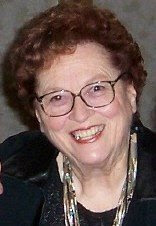I have a confession to make.
I bought my dog from a breeder.
I know. It’s not the most socially responsible thing to do. I have heard it time and again and I walk the streets of my little village with my West Highland Terrier, Bonnie. “Is that a purebred?” I’m asked, sometimes with just vaguest hint of disdain.
“Yes, yes!” I want to cry. “I’m sorry! But I’m allergic and this breed is supposed to be hypo-allergenic.” (They’re not…at least to me who has superhero-sized allergies.) I want to continue, “They are supposed to be great with kids and easy to have around.” (All true.) And as I look at Fido, on the leash of the person I’m talking to, staring back at me with his golden retriever face with his dachshund-shaped body, I know the answer to the question I inevitably ask. “What’s your dog?”
“Oh, just a mutt. I rescued him.”
And then I feel bad about myself. (As if I need another reason.)
Five years ago, I got the hankering for a dog. I knew it would be a lot of work and that our collective lifestyle would have to change but the kids promised that they would help. Isn’t that great? (And a big, fat lie?) Anyway, here we sit, years later, with Bonnie, our beautiful and devoted West Highland Terrier who just might be the best dog ever. We adore her. And the kids do help with her, which from what I hear from my other friends with pets, is a miracle.
But since I’ve been out and about with her, I am mostly encountering rescued dogs and their owners. In the past several weeks alone, no fewer than three of my friends adopted dogs and the situation has been nothing but positive on all accounts. My best friend from college used to work at Animal Planet and feels very strongly that animals should be rescued not bought, although she has bonded with Bonnie the Westie . Her adamant opinion on rescue resulted in the adoption of Riley by mutual friends of ours, on whom the jury is still out. (Riley, that is, not our mutual friends.) Riley is an adorable beagle who was inexplicably abandoned and rescued by my friends. Riley seems to be smiling all the time, but according to my friend, it is the smile of the devil. Riley has yet to adapt to behavior in polite society, but still, we hope.
Another friend just adopted a poodle/Jack Russell Terrier mix named Pedro. Pedro is three, fully housebroken, and has adapted to life with my friend, her husband, and their four daughters like a fish to water. He now resides in a beautiful home on two acres and much to my surprise, sleeps between my normally-fastidious friend and her husband IN THEIR BED. (My dog sleeps on a pillow NEXT to my bed and yes, there is a difference.) No comment. Pedro is a very lucky dog and on the day I met him, conveyed his enthusiasm for his new living situation by attempting to give me a tour of his new digs as if to say, “Can you believe how good I’ve got it?!”
Yet another friend adopted a Great Dane/St. Bernard mix to add to their family of four dogs. When I showed my son a picture of Bruno, the new pup, he looked at me and said incredulously, “Do they have FIVE dogs now? And do you see the size of his paws?” Yes to both, son. And they love each and every one equally. Bruno was a dog that had been sent to a shelter where at the tender age of ten weeks, surely would have met his maker. He had been rescued from a flood-ravaged region of the United States with his sister and his brother, who I’m happy to report, have also been rescued by East Coast families. He’s fitting in quite well with the rest of the brood, with only one of his brothers exhibiting the least bit of jealousy at the new arrival. (He’ll get over it—like humans, everyone adjusts to a new family member. Eventually.)
And yet another friend has rescued two greyhounds. Greyhounds, you say? Me, too. They’ve never been a breed that has interested in me, and the aforementioned Pedro family had one whose breath stunk to high heaven. And then I met my other friend’s two dogs and fell in love with both of them, although the female and I appeared to have developed a deeper bond. They are gentle, loving, quiet, and good natured, which in my book are all of the qualities you would want in a dog (and a spouse, obviously).
The time may come when I’m ready for another dog—actually that time has already come but I’m not sure everyone is on board with the plan—and I think I will go the rescue route. We had a purebred Golden Retriever—the pick of the litter, no less—when I was growing up who unfortunately succumbed to a genetic disorder before his second birthday. The mutts, from what I hear, are heartier and healthier than the pure breeds, another thing to recommend them. My poor dog, Bonnie, suffers from skin allergies and a sensitive stomach and I do wonder if she had a more colorful genetic makeup if she’d suffer less. It’s anyone’s guess. But when Pedro’s new owner described the animal shelter to me and the number of animals there needing homes, it gave me pause. I’m able to control my allergies to my dog with consistent hand washing and vacuuming, so what would another supposedly hypo-allergenic dog (like Pedro) bring to the mix in terms of discomfort? Probably not a lot.
So, a show of hands please: is it time to give Bonnie a rescued playmate?
Maggie Barbieri









